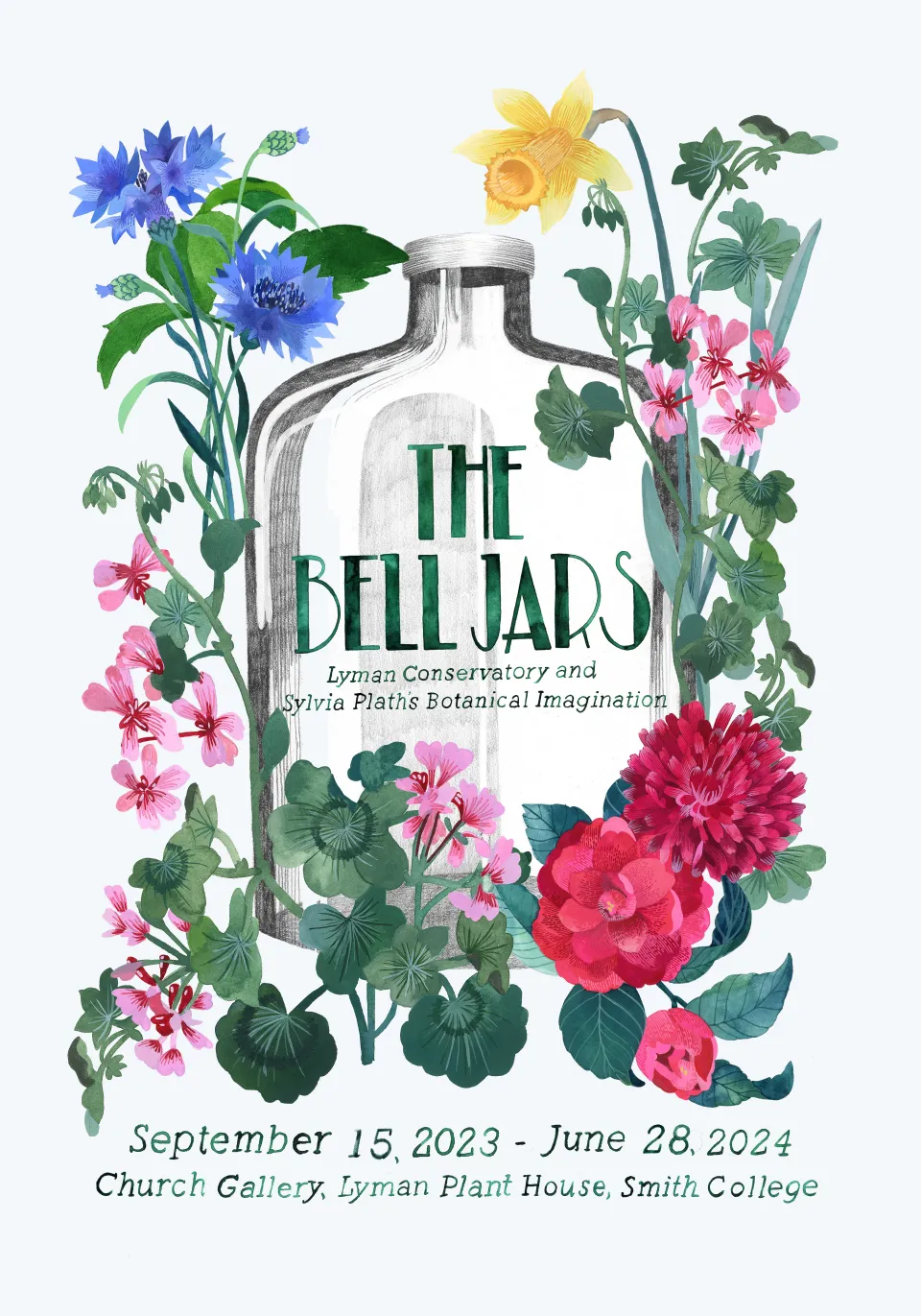The Bell Jars: Lyman Conservatory and Sylvia Plath’s Botanical Imagination
September 15, 2023 through June 28, 2024
Sylvia Plath graduated from Smith College in 1955 and went on to become one of the 20th century’s most important writers, celebrated for her poetry and her novel, The Bell Jar. Botanical images and tropes run throughout her work, partly because Plath took a year-long General Botany course at Smith’s Lyman Plant Conservatory as a first-year student. The bell jar, Plath’s famous metaphor for the oppressive conditions of life as a woman in the United States of the 1950s, is one example. A bell jar is a botanical technology used in horticulture and plant physiology. Plath employed them during lab exercises on photosynthesis, and her novel drew on this experience. These same bell jars are still in use at Lyman today.
The Bell Jars: Lyman Conservatory and Sylvia Plath’s Botanical Imagination tells this story, shedding new light on Plath’s life and work while also examining the power of interspecies encounters between people and plants. Using archival materials and Plath’s literary work as a guide, this exhibit invites visitors to inhabit Lyman as Plath once did. Cross-pollinating the humanities and natural sciences, we hope to examine Plath’s botanical imagination and Lyman’s role in cultivating it.
This exhibit was made possible by our supporting departments and centers:
- Anthropology
- Biological Sciences
- Center for Religious and Spiritual Life
- Center for the environment (CEEDS)
- English Language and Literature
- Landscape Studies
- Office for Equity and Inclusion
- Poetry Center
- Smith College Lecture Committee
- Special Collections
- Study of Women and Gender
- The Friends of the Botanic Garden of Smith College
